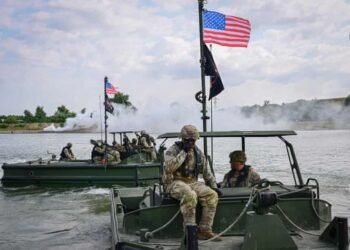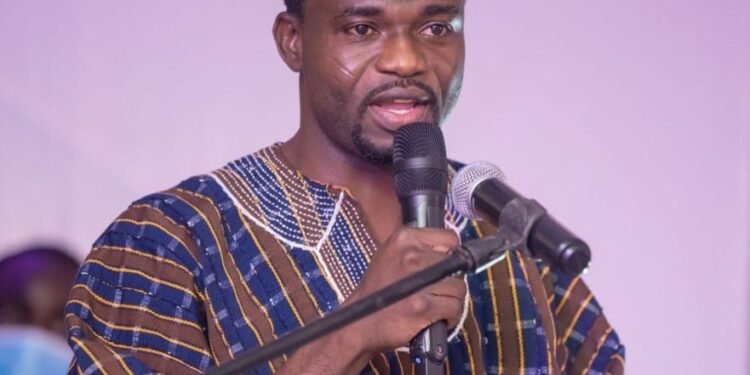US President Donald Trump has expressed optimism ahead of the high-stakes Alaska summit, implying that there was a 75% chance of the meeting succeeding, and that the threat of economic sanctions may have made Russian President, Vladimir Putin more willing to seek an end to the war.
Trump is meeting face-to-face with Putin in Anchorage, Alaska today, August 15, 2025, for a high-stakes summit that could determine not only the trajectory of the war in Ukraine but also the fate of European security.
The sit-down offers Trump a chance to prove to the world that he is both a master dealmaker and a global peacemaker. For Putin, a summit with Trump offers a long-sought opportunity to try to negotiate a deal that would cement Russia’s gains, block Kyiv’s bid to join the NATO military alliance and eventually pull Ukraine back into Moscow’s orbit.
However, any success is far from assured, especially as Russia and Ukraine remain far apart in their demands for peace. Putin has long resisted any temporary ceasefire, linking it to a halt in Western arms supplies and a freeze on Ukraine’s mobilization efforts — conditions rejected by Kyiv and its Western allies.
The Kremlin said that Trump and Putin will first sit down for a one-on-one discussion, followed by the two delegations meeting and talks continuing over “a working breakfast.” They are then expected to hold a joint press conference.
In the days leading up to the summit, set for a military base near Anchorage, Trump described it as “ really a feel-out meeting.” However, he’s also warned of “very severe consequences” for Russia if Putin doesn’t agree to end the war.
Trump conceded that he was unsure whether an immediate ceasefire could be achieved, but expressed interest in brokering a peace agreement.
Trump insisted that he would not let Putin get the better of him in Friday’s meeting, telling reporters, “I am President, and he’s not going to mess around with me.”
“I’ll know within the first two minutes, three minutes, four minutes or five minutes … whether or not we’re going to have a good meeting or a bad meeting.
“And if it’s a bad meeting, it’ll end very quickly, and if it’s a good meeting, we’re going to end up getting peace in the pretty near future.”
Donald Trump
Ukrainian President, Volodymyr Zelenskyy has time and again cast doubts on Putin’s willingness to negotiate in good faith. His European allies, who’ve held increasingly urgent meetings with US leaders over the past week, have stressed the need for Ukraine to be involved in any peace talks.
Skepticism Over Agreement To Be Reached At Alaska Summit
Trump’s repeated suggestions that a deal would likely involve “some swapping of territories” — which disappointed Ukraine and European allies — along with his controversial history with Putin have some skeptical about what kind of agreement can be reached.
Ian Kelly, a retired career foreign service officer who served as the US Ambassador to Georgia during the Obama and first Trump administrations, said that he sees “no upside for the US, only an upside for Putin.”
“The best that can happen is nothing, and the worst that can happen is that Putin entices Trump into putting more pressure on Zelenskyy.”
Ian Kelly
Meanwhile, Trump said that a second meeting – not yet confirmed – between him, Putin and Zelenskyy would be the more decisive.
Any such meeting would be a concession by Putin since he refuses to recognise Zelenskyy as the legitimate leader of Ukraine.
Zelenskyy will face a difficult choice if Putin rejects Ukraine’s call for a full 30-day ceasefire and offers only a partial break in the fighting, particularly if Trump thinks a three-way meeting should still go ahead.
READ ALSO: Bright Simons Urges Strict Adherence To Disaster Protocols























